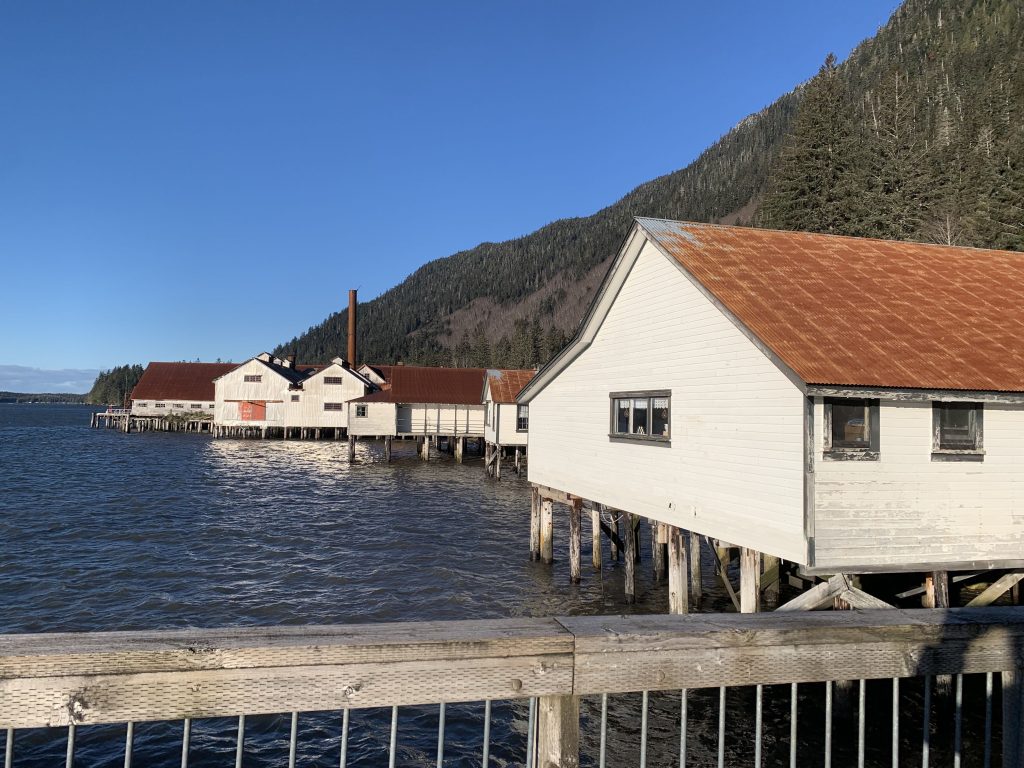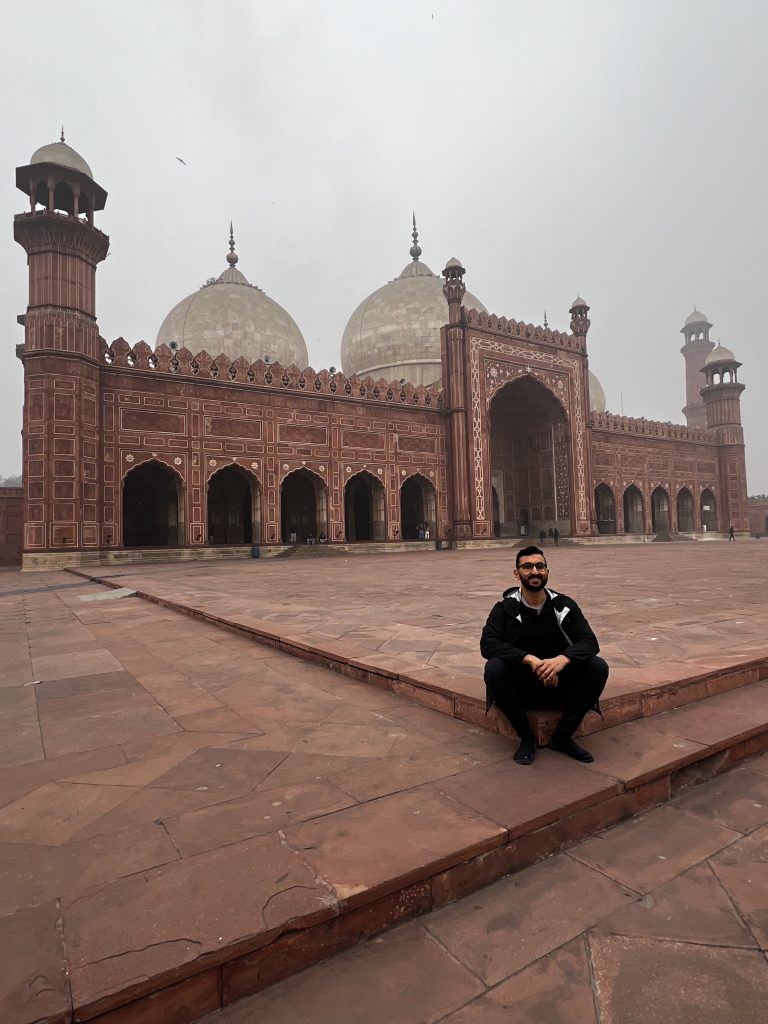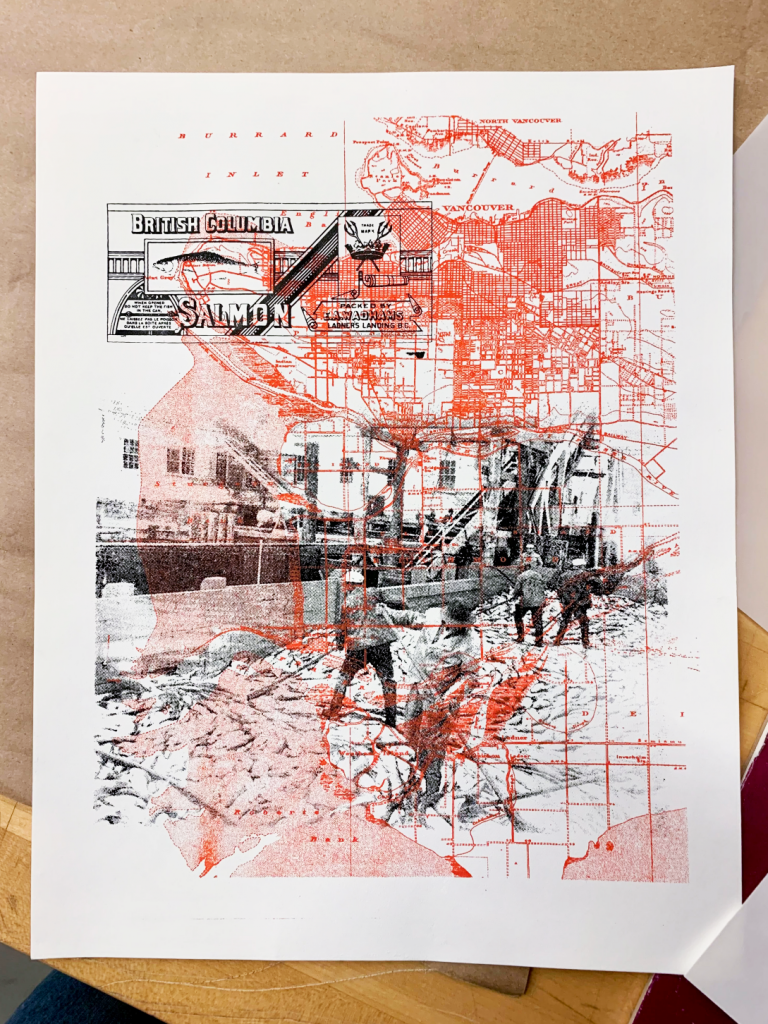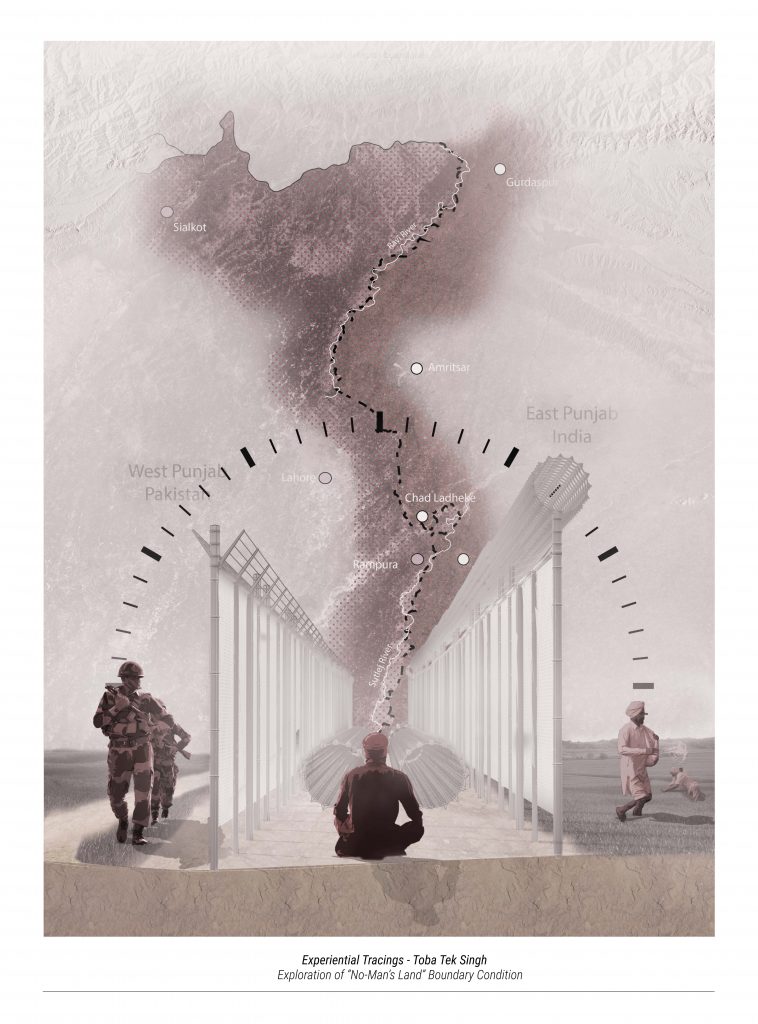Winners of the 2024 Helena and Jerzy Boraks Graduate Travel Bursary
By Maria Cook
February 3, 2024
Two Master of Architecture students have received a 2024 Helena and Jerzy Boraks Graduate Travel Bursary of $2,000 each for travel to British Columbia and Pakistan to support master’s thesis research.
Lauren Liebe travelled to British Columbia to visit historic and active fishing industry sites. Her trip included the North Pacific Cannery National Historic Site of Canada in Port Edward and the Gulf of Georgia Cannery National Historic Site in Steveston Village, a fishing village in Richmond.
“I was able to see what a full-scale canning site looked like with bunkhouses, net storage facilities, production buildings, and learned about what life was like working at such sites,” says Liebe.
“It helps my research to get a sense of the communities surrounding these sites in remote and urban contexts, including understanding the logistics of accessing more remote sites which are more common in canneries,” she says. “My trip also helped me to understand the similarities and differences in form, history, and values to the people they impact and the immense value of fish in everyday life.”

Arkoun Merchant travelled to four places in Pakistan. Lahore, Wagah, Kasur, and Kartarpur represent key paths of migration for those forcibly displaced during Partition, fleeing Indian Punjab and crossing over into Pakistan.
“The main goal for this research was to understand the memory that is attached to a place when there is associated trauma,” says Merchant. “This memory can be in the form of lived experience, oral histories of survivors, or in the form of physical remnants, including places that provided shelter and refuge for those displaced.
“The planned design intervention is a site in Kasur,” he adds. “I learned the stories associated with it from the time of Partition and the community’s connection to it. This experience made it apparent that while the pain associated with Partition cuts deep, there is willingness to finally begin conversations toward what reparation might look like.”

Student: Lauren Liebe
Supervisor: Assistant Professor Suzanne Harris-Brandts
Thesis Title: Ecological Thresholds: Tracing Fish Journeys in and Beyond Industry Expansion

Abstract: The Pacific Northwest fishing industry was a prominent economic force from the late 19th to mid-20th century. After local resources were exhausted, canneries were typically abandoned, leaving behind a legacy of economic hardship and environmental contamination. This thesis reflects on the past, present, and possible future of such sites, engaging with more-than-human and multispecies approaches within the environmental humanities while considering the methodological implications for architecture. A series of explorations in storytelling take place through illustrative printmaking, put forward as a useful technique to parse the impacts of industrial fishing — both on fish and people. The work challenges the thresholds between architecture and ecology in efforts to speculate on what may become of these sites into the future if anything at all.
Student: Arkoun Merchant
Supervisor: Assistant Professor Suzanne Harris-Brandts
Thesis Title: The Effects of Border Making in Post-Partition Punjab: Design as a Facilitator of Storytelling and Reconciliation

Description: The 1947 Radcliffe Line split the Indian subcontinent into two states: India and Pakistan. This partition was the single largest event of mass migration in history, with tens of millions displaced and hundreds of thousands of others killed. This thesis focuses on the long-term ramifications of such reckless border making, zooming into the lived realities of the Punjab province. It uses reinterpreted approaches to mapping and illustration to critique the removed geopolitical nature of abstract cartographic documents, as well as to share stories of forced displacement. Through document analysis and firsthand site visits, the work provides a framework for designs scenarios focused on memory and engagement with the Borderlands. Overall, the thesis demonstrates how design can facilitate post-conflict exchange amid the lasting effects of Partition.
The bursary is awarded annually by the Dean of Graduate and Postdoctoral Affairs on the recommendation of the Director of the Azrieli School of Architecture & Urbanism to outstanding graduate students in architecture to support research-related travel distant from Ottawa. Preference will be given to students pursuing research in northern regions of Canada.